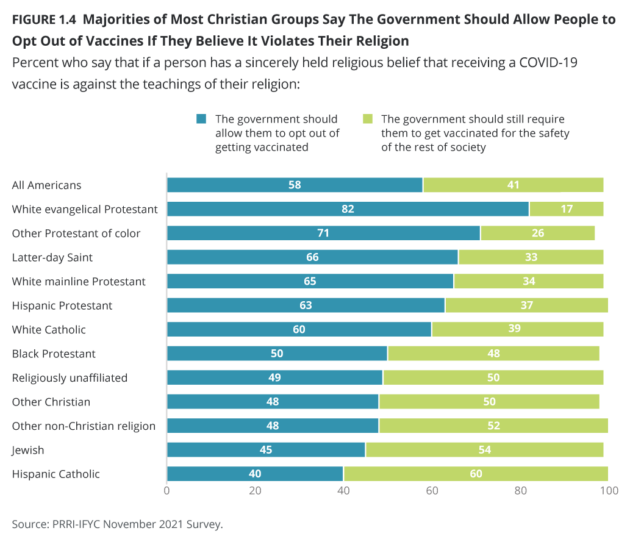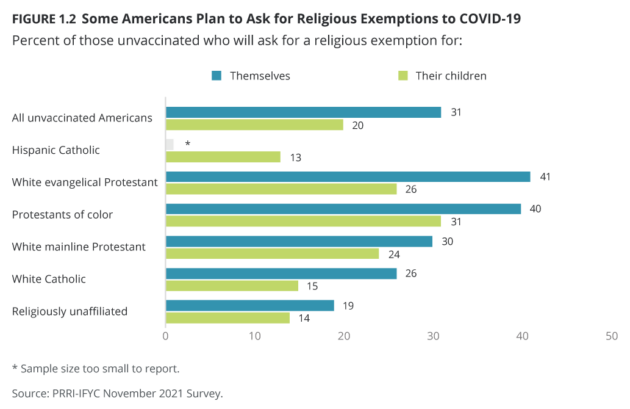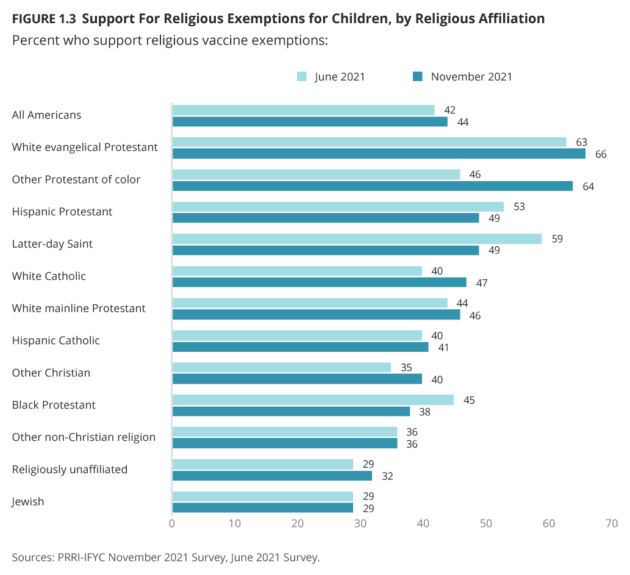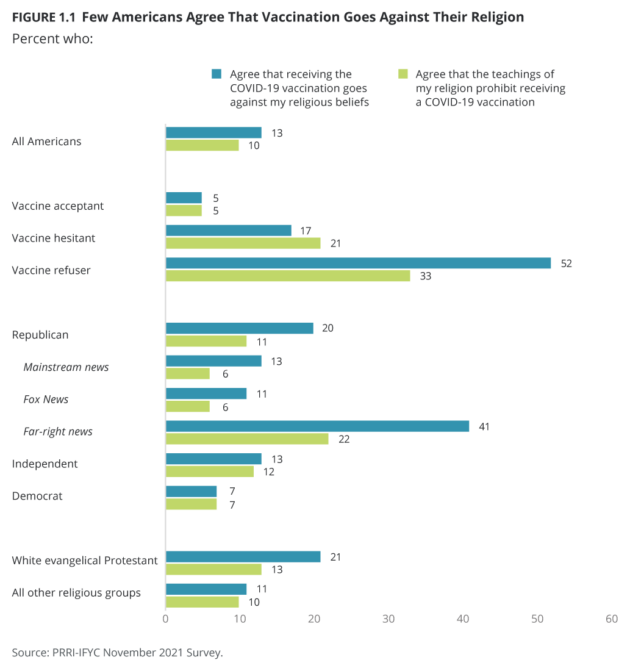Americans are divided over whether COVID-19 vaccination mandates should include religious exemptions, according to a new survey by the Public Religion Research Institute and Interfaith Youth Core.
The survey, which was released late last week, showed that one in 10 Americans say their religious teachings prevent them from taking the COVID-19 vaccine, and 13 percent say that the vaccine contradicts their religious beliefs. The research also found that 52 percent of vaccine refusers were more likely to say that their religious beliefs would be violated if they got vaccinated than to say that the vaccine contradicts their religious teachings (33 percent). Additionally, 51 percent of Americans favor allowing individuals who would otherwise be required to get vaccinated against the coronavirus to opt out if it violates their religious beliefs.
On the other hand, 47 percent opposed religious exemptions, and 60 percent argued that there are no valid religious reasons not to get vaccinated. Similarly, 59 percent of Americans argued that too many are using religion to forgo vaccination.
The research took into account that a majority of vaccinated Americans (67 percent) are fed up with others who are vaccine-hesitant, arguing that they “are putting the rest of us at risk.” Conversely, a greater proportion of Americans (71 percent) are “angry at those who think they have the right to tell me to get vaccinated against COVID-19.”
“The wide berth allowed for the expression and practice of religions, codified in our Constitution and laws, are bedrock American principles, but Americans also believe that principles of religious liberty are not absolute but rather should be balanced with the health and well-being of our communities,” said Dr. Robert Jones, CEO and founder of PRRI.
The survey was conducted online between October 18 and November 9, using a total sample of 5,721 American adults living in all 50 states.
–Alan Goforth | Metro Voice
 Metro Voice News Celebrating Faith, Family & Community
Metro Voice News Celebrating Faith, Family & Community












